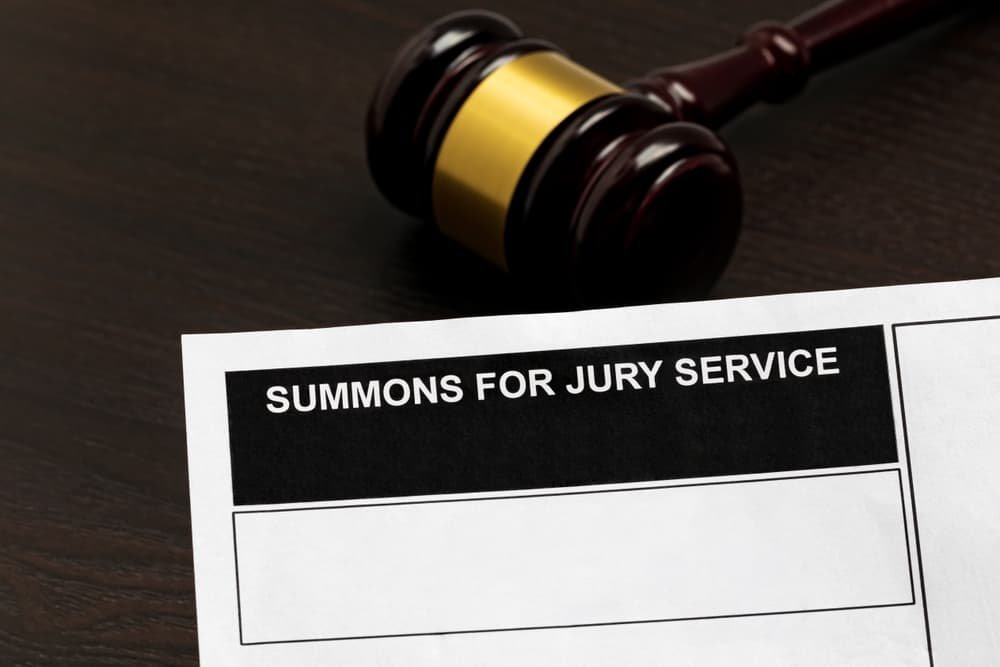Most people don’t jump with excitement when they open their mailbox and find a jury duty summons. For many, it feels like an inconvenient disruption to work, family responsibilities, or daily routines. Some ignore the notice, assuming nothing bad will happen. Others wonder if the court will even notice. But here’s the reality: skipping jury duty can lead to fines, contempt of court charges, and even jail time in certain cases.
In this comprehensive guide, you’ll learn exactly what happens if you don’t go to jury duty, why it matters, what the law says, the differences across states, and how to handle it responsibly. By the end, you’ll know the risks, your options, and how to avoid legal trouble.
What Is Jury Duty and Why Is It Important?
Before diving into the penalties, it helps to understand why jury duty exists in the first place.
Jury duty is not just a random inconvenience it’s a constitutional right. The U.S. Constitution guarantees the right to a trial by jury in both criminal and civil cases. That right can only exist if ordinary citizens serve when called.
- Role of juries: Jurors decide guilt or innocence in criminal trials and liability in civil disputes. They weigh the evidence, hear testimony, and deliberate until reaching a verdict.
- Fairness of trials: Having a jury of peers ensures that decisions don’t rest solely in the hands of judges or government officials. It brings community perspective into the justice system.
- Shared responsibility: To make sure the system is fair, potential jurors are randomly selected from lists of registered voters or licensed drivers.
Skipping jury duty doesn’t just inconvenience the court it undermines the foundation of the legal system. When fewer people show up, it becomes harder to form a fair and impartial jury.
What Happens If You Don’t Go
So what exactly happens if you toss your jury summons aside and go about your day? The short answer: it depends on your state and the discretion of the court. But ignoring it almost never ends well.
Immediate Consequences
If you miss jury duty without notice, the court will typically mark you as a “failure to appear.” From there, several things can happen:
- You may receive a second summons requiring you to show up on another date.
- The court may send you a warning letter or fine notice.
- You might be required to explain your absence in writing or in person.
- In some jurisdictions, judges can issue a bench warrant for your arrest right away.
Legal Penalties for Skipping Jury Duty
Penalties differ by state, but most courts treat ignoring jury duty as a serious offense.
- Fines: States typically impose fines ranging from $100 to $1,500.
- Contempt of court: A judge may hold you in contempt, which carries higher fines and sometimes jail time.
- Jail sentences: Rare, but not unheard of. Jail is often reserved for repeat offenders or those who blatantly defy court orders.
Case Study: In Massachusetts, a man named James McDonough ignored multiple jury duty summonses. Eventually, he was arrested, fined $2,000, and sentenced to two days in jail. The case made headlines and highlighted that courts can and will punish persistent no-shows.
Long Term Consequences
Beyond fines and possible jail, skipping jury duty can cause long-lasting headaches:
- Criminal record: In some states, missing jury duty is classified as a misdemeanor.
- Background checks: Employers may see fines or contempt charges when running background screenings.
- Harsher penalties for repeat offenses: Courts often lose patience if you ignore multiple summonses.
Ignoring your civic duty once might cost you money. Repeatedly ignoring it can stain your record for years.
What If You Accidentally Miss Jury Duty?
Not everyone skips jury duty on purpose. Sometimes the notice gets lost in the mail, you forget the date, or a family emergency happens. If that’s your situation, don’t panic. Courts often give leeway if you act quickly and explain yourself.
Here’s what you should do right away:
- Call the court clerk as soon as you realize you missed it.
- Explain the situation honestly courts appreciate good faith.
- Provide proof if you had an emergency (doctor’s note, flight records, etc.).
- Request a reschedule so you can fulfill your duty without penalty.
Many judges understand that mistakes happen. The key is communication. Ignoring the issue completely is what gets people into real trouble.
Valid Excuse
Courts know that some people truly cannot serve. If you fall into one of these categories, you may qualify for exemption or postponement:
- Medical issues: Serious illnesses, surgeries, or mental health conditions (must be verified by a doctor).
- Financial hardship: Serving would cause extreme financial loss, such as hourly workers who cannot afford unpaid days off.
- Caregiver responsibilities: Parents of young children, caretakers of elderly relatives, or those with dependents.
- Students: Full time students often qualify for deferral or exemption.
- Military service: Active duty military members are usually exempt.
Important: Always file for exemption before your scheduled date and provide documentation. Without proof, the court may deny your request.
What Happens If You Don’t Respond
Ignoring a summons is even riskier than missing your scheduled day. Courts assume you received the notice and chose not to respond.
Here’s how escalation works in many states:
- First summons You fail to respond.
- Second notice Court sends a warning or reschedules automatically.
- Failure again Judge may issue a bench warrant for your arrest.
- Arrest You could be taken into custody, fined, and required to serve later anyway.
Real Example: In Texas, a woman who ignored multiple jury summonses was arrested on a bench warrant and ordered to pay fines before being released. The court made it clear: ignoring isn’t an option.
State by State Differences
Every state has its own laws. Some are more forgiving, while others enforce strict punishments.
Here’s a breakdown of penalties in major states:
| State | Penalty for Missing Jury Duty | Jail Possible? |
| California | Fine up to $1,500; contempt of court | Yes, rare |
| Texas | Fine between $100–$1,000 | Yes |
| New York | Fine up to $250; possible contempt charge | Yes |
| Florida | Fine up to $1,000; up to 3 days in jail | Yes |
| Massachusetts | Fine up to $2,000; repeat offenders risk jail time | Yes |
| Illinois | Fine up to $500; possible contempt charge | Yes |
| Pennsylvania | Fine up to $500; possible jail for contempt | Yes |
| Ohio | Fine up to $250; contempt charges possible | Yes |
As you can see, the law varies widely. Always check the rules in your state.
How to Handle a Jury Duty Summons Responsibly
If you receive a summons, here’s the best way to handle it and avoid problems:
- Read the entire summons carefully. Don’t skim—important instructions are often buried in the fine print.
- Mark your calendar right away. Treat the date as mandatory.
- Check for conflicts early. If you can’t serve, file a request for postponement.
- Notify your employer. Federal law protects you from being fired for jury service.
- Prepare for the day. Bring ID, reading material, and proof of excuse if needed.
Even if you show up and aren’t selected, just appearing fulfills your legal obligation. That’s far easier than dealing with fines or court orders later.
Tips to Avoid Trouble With Jury Duty
- Check your mail regularly. Many people miss jury duty simply because they overlooked the notice.
- Update your address. Courts pull names from DMV and voter rolls, so keep your records current.
- Respond promptly. If you can’t serve, request a deferral instead of ignoring it.
- Keep documentation. Save copies of exemption requests and medical notes.
- Take it seriously. Even if you think you won’t be selected, showing up avoids legal risks.
FAQs
What if the summons gets lost in the mail?
Courts assume you received it. If you never show up, you may face penalties. Updating your mailing address is your responsibility.
Can employers fire you for missing work to attend jury duty?
No. Federal law and most state laws prohibit employers from firing or punishing you for serving. Some states even require employers to continue paying regular wages during service.
How often can you be called for jury duty?
Most states limit summonses to once every one to three years. However, rules vary, so check your local guidelines.
What if I’m self-employed?
You may qualify for financial hardship exemptions if serving would cause extreme income loss. Courts consider each of these requests individually.
What if I move states?
You must serve in the state where you’re summoned. If you’ve permanently moved, you can usually provide proof of new residency to be excused.
Conclusion
So, what happens if you don’t go to jury duty? In most cases, you’ll face fines, possible contempt of court charges, and in rare but real cases jail time. The penalties vary by state, but one fact stays the same: ignoring a summons never makes it disappear.
Instead of avoiding it, the smarter move is to respond promptly, request a postponement if necessary, and show up when required. Not only will you avoid legal trouble, but you’ll also play a part in protecting the fairness of the justice system.



